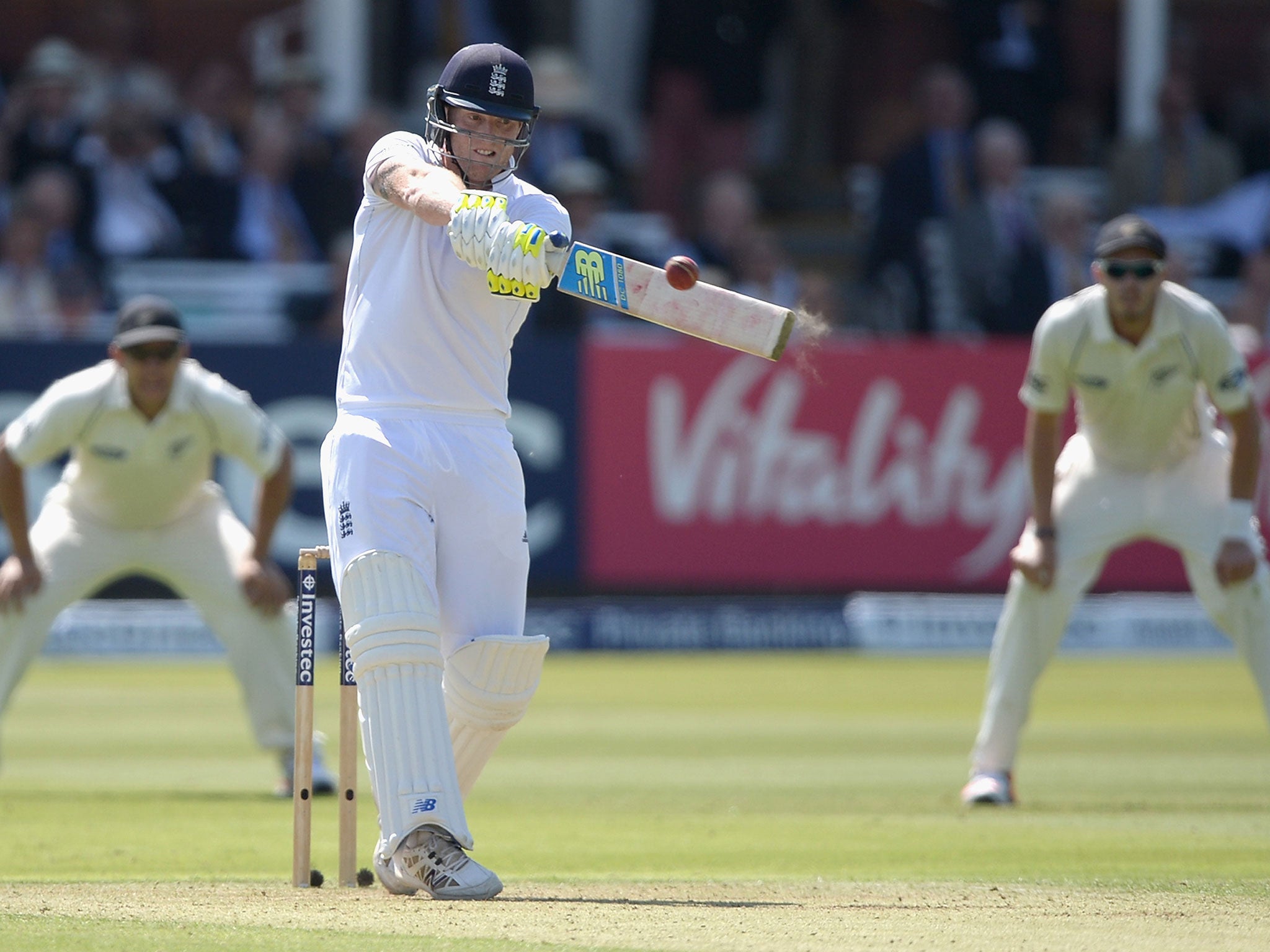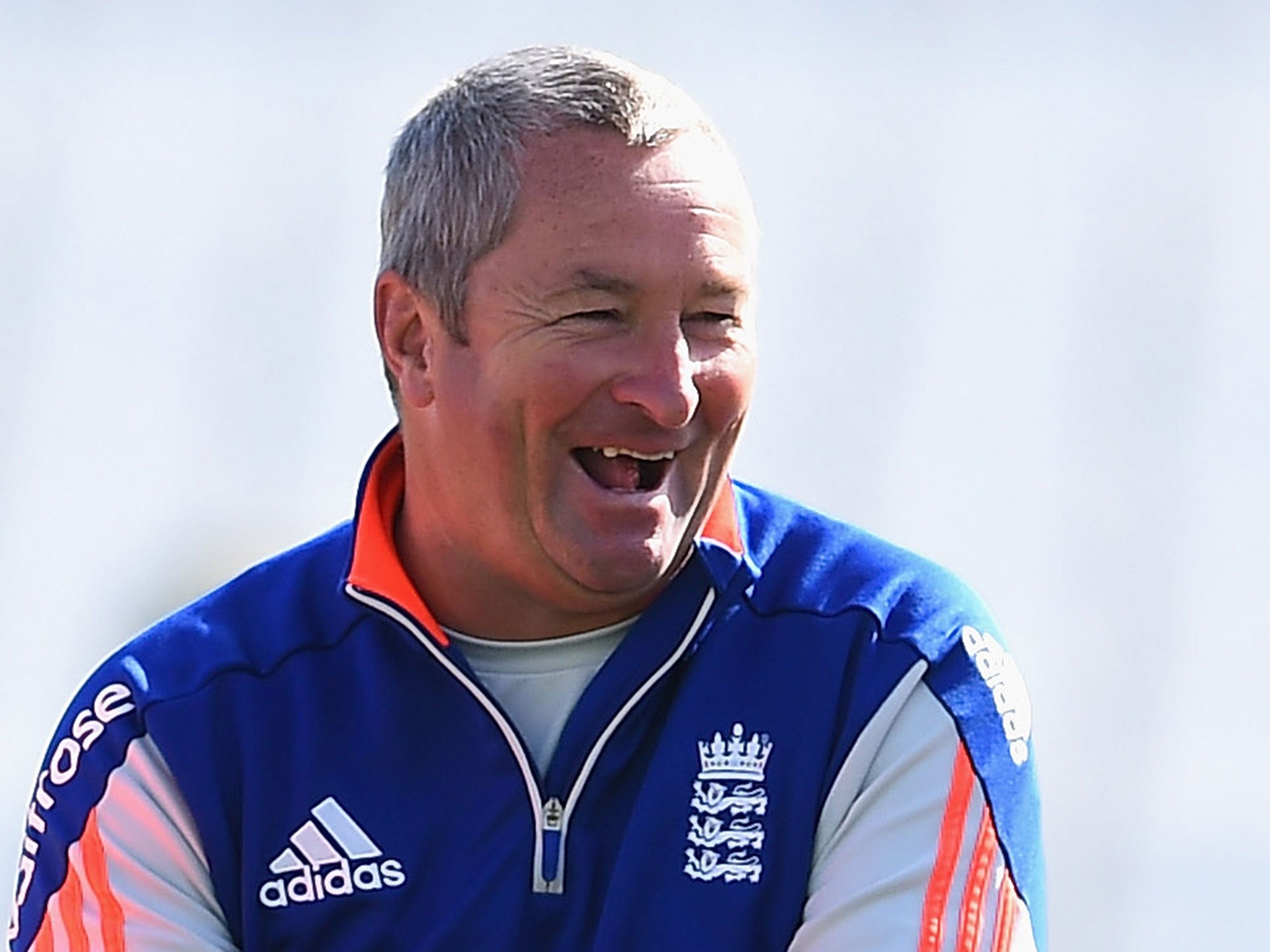Ashes 2015: Paul Farbrace says England's cavalier style came by accident not design
Assistant coach tells Stephen Brenkley how one whirlwind partnership against New Zealand spawned a brand of cricket that helped regain the Ashes

Your support helps us to tell the story
From reproductive rights to climate change to Big Tech, The Independent is on the ground when the story is developing. Whether it's investigating the financials of Elon Musk's pro-Trump PAC or producing our latest documentary, 'The A Word', which shines a light on the American women fighting for reproductive rights, we know how important it is to parse out the facts from the messaging.
At such a critical moment in US history, we need reporters on the ground. Your donation allows us to keep sending journalists to speak to both sides of the story.
The Independent is trusted by Americans across the entire political spectrum. And unlike many other quality news outlets, we choose not to lock Americans out of our reporting and analysis with paywalls. We believe quality journalism should be available to everyone, paid for by those who can afford it.
Your support makes all the difference.Lord’s, 21 May. England are in deep trouble. Again. Most of the top order has been removed. The score is 30 for 4. New Zealand’s top-rank fast bowlers are rampant. Something has to be done.
Everything then changes. In the next hour a transformation is effected that alters the method of the team and the course of the season. It seems to be part of a brilliant strategy. They play a brand of ebullient cricket that will lead 79 days later to the Ashes being regained.
Joe Root and Ben Stokes, batting defiantly, breathlessly, put on 83 by lunch, share a hundred in 116 balls and in all 161 from 191. England have reinvented themselves and it is wondrous.
All this, it now turns out, was almost stumbled upon, devised by accident rather than design as if Archimedes had stepped into his bath. Paul Farbrace, England’s engaging assistant coach, was in temporary charge at the time after the brutal, swift sacking of Peter Moores and before Trevor Bayliss was appointed in his stead. After the unexpected triumph in Nottingham on Saturday, Farbrace described what happened in that seminal couple of hours.
“Against New Zealand I don’t think we set out to be an ultra-attacking team,” he said. “It just happened by chance at 30 for 4 on that first day at Lord’s, that Root plays one way, get his singles and scores boundaries, and Stokes came in and whacked it. And all of a sudden the headlines were ‘this new England way of playing’, but I think we stumbled across it as opposed to set out to play in that way.
“I think it suits us. You look at the way the middle order play and they are all quite attacking batsmen. Trev keeps telling them to have a positive mindset, because then you are in the best position to play whatever ball is delivered to you – in the best position to leave, defend or hit it.”
There was still some way to go. England lost the next Test against the Kiwis but by then they were smart enough to realise they had something. Farbrace was with England in their darkest period. It stretches belief that less than six months ago they were unceremoniously dumped out of the World Cup by Bangladesh in Adelaide. It did not get much better as the Test team under Alastair Cook went to the Caribbean and drew 1-1 with an extremely moderate West Indies team.
“We were all low,” said Farbrace. “I said at the time, it wasn’t Peter Moores’ fault we failed in the World Cup. He did nothing but work his socks off for England cricket. He is an excellent coach and bloke and was a very popular member of our group.

“The decision was taken to change the coach after that World Cup. It was a disaster, there is no getting away from it, it was a disaster. We didn’t play well. We got blown away in the first game and I don’t think we ever recovered. Following Mooresy down the tunnel at Adelaide was horrible. I did not enjoy seeing him take the stick that he did, and I will defend him to the hilt. That bloke gave absolutely everything to England. I am so pleased that Cooky mentioned him [after the Ashes victory] because he did nothing but work hard for the team.
“The last week in Australia was a horrible week for all of us. Players get stung by that criticism. But we came back and the lads just felt it was time to change the way we were playing and our approach to certain things and they have carried that out. And we have seen the improvement.”
While England celebrate (“it will be a few days before they come to terms with what they have achieved,” said Farbrace) the talk is already turning to how far this team can go. There is the small matter of this series to finish and then there are tough touring assignments against Pakistan in the UAE and against South Africa.
While their wholly unpredictable deeds in the Ashes, a wham-bam series that has so far needed only 1,041 of its allotted 1,800 overs – 57.8 per cent – to complete four matches must have infused confidence, Farbrace understands instinctively that it may not always be like this.
“You do need good and bad,” he said. “You are not going to win the Ashes every day or win a Test before lunch on the third day all the time. There will be times when we lose.
“At Lord’s we got hammered, it was a slow death over the four days, it was hard, it was horrible to watch. But what was impressive was that everyone went away, they worked on their game, they came back very clear and determined to play their way. That was the one mistake we made in the whole series, that after Cardiff we spent a lot of time talking about how hard Australia would come back hard at us.”
Somehow, England have also stumbled upon a blend of players that works well with each other. But maybe that is to damn the selectors with faint praise. Maybe they knew exactly what sort of combination would work and how the players in that combination should be used. Nothing has worked better, for instance, than moving Stokes up to six and Moeen Ali down to eight.
“You look at Moeen now, he has accepted batting at No 8,” Farbrace said. “He doesn’t want to bat at No 8, of course he doesn’t. He wants to bat as high up the order as he can. He is a proper batsman and he will go on to have a fantastic career as a batter in Test cricket, I believe. But Stokes batting at six was the right way to go against New Zealand. It meant we were going to get more out of him.”
Farbrace praised the “dream” senior players as fine role models and Cook’s stubborn captaincy. He offered a fascinating insight into Stokes’ development in the team and the relationship between Stokes and Cook. Stokes might be a talented, hard-nosed competitor but he still knew he had something to prove and he still wanted and needed backing.
“An interesting relationship has developed between Cooky and Ben Stokes,” said Farbrace. “Over the last 18 months or so, Stokes has wanted to bowl more and maybe Cooky hasn’t always trusted him to bowl so he has had short spells.
“Stokes knows he has short spells so he has been trying to impress with inswingers, bouncers, yorkers, whatever. What we are now seeing, is that Stokes has had a couple of good spells and has been thrown the ball a bit more. So he is getting confidence from Cooky, Cooky is getting confidence in Stokesy, and now he is bowling spells like he did on Friday – a long spell, which was needed for the team.
“So the next time we are in that situation, Cooky will have no qualms about chucking Ben the ball, knowing that he can do it, and Ben won’t feel like he has to prove himself every time he bowls. When players are not trying to prove something to the captain or coaches and just playing the way the team needs them to play, that is a great place for a team to be.”
Remember the date: 21 May 2015.
Join our commenting forum
Join thought-provoking conversations, follow other Independent readers and see their replies
Comments